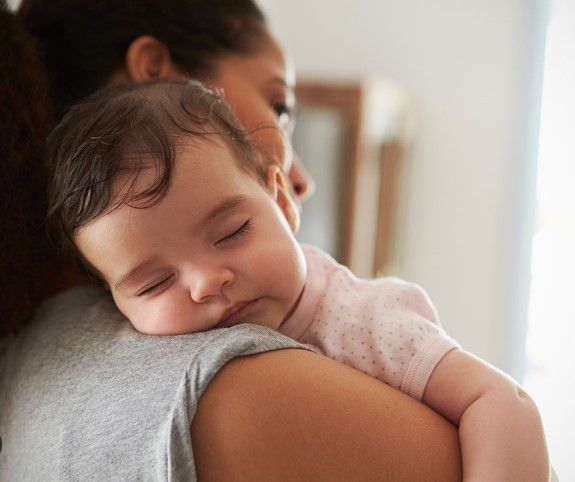35-year-old mother allegedly sells newborn baby for GH¢300 in Western Region
)
Reports say the mother, identified as 35-year-old Mena Efua, is said to have handed over her newborn to an unknown individual who claimed they could find a buyer. The information was reportedly disclosed by Efua’s elder sister, Maame Esi, during an interview with Nhyiraba Paa Kwesi Simpson, host of Connect FM's *Omanbapa Morning Show*. Maame Esi, who assisted in the baby’s home delivery a few weeks earlier, became suspicious after the child’s sudden disappearance.
"I helped her deliver at home just last Monday, and now the baby is missing. When I confronted her, she admitted to giving the child to someone in exchange for GH¢300, but she's refusing to disclose who the person is," Maame Esi recounted.
Initially, Efua allegedly informed her sister that a nurse had promised to help find a buyer for the baby. However, she has since refused to disclose any details about the nurse’s identity. According to Maame Esi, Efua now claims the baby was taken to Accra but has been unable to provide an exact location. Concerned and desperate to find the child, the family reported the incident to local authorities, prompting the Domestic Violence and Victims Support Unit (DOVVSU) of the Sekondi Police to open an investigation.

Similarly, in a recent incident in India, a young mother in Hyderabad allegedly attempted to sell her newborn twins due to severe financial hardship. After her husband abandoned her, the woman reportedly sought to arrange the sale through local contacts, hoping to secure a substantial sum. Locals grew suspicious of her activities and alerted authorities, leading to her arrest and the rescue of the infants, who were placed in protective care.
A similar case in Nigeria in 2022 exposed a so-called “baby factory” in Anambra State, where authorities found women held to bear children who were then sold illegally. Some of the young mothers, desperate for financial relief, had reportedly agreed to sell their newborns, while others were held against their will.
These tragic cases highlight the impact of economic distress, lack of support systems, and exploitation by criminal networks, often leaving vulnerable women and children caught in dire situations.
)
)
)
)
)
)
)
)
)
)
)
)
)
)
)
)
)